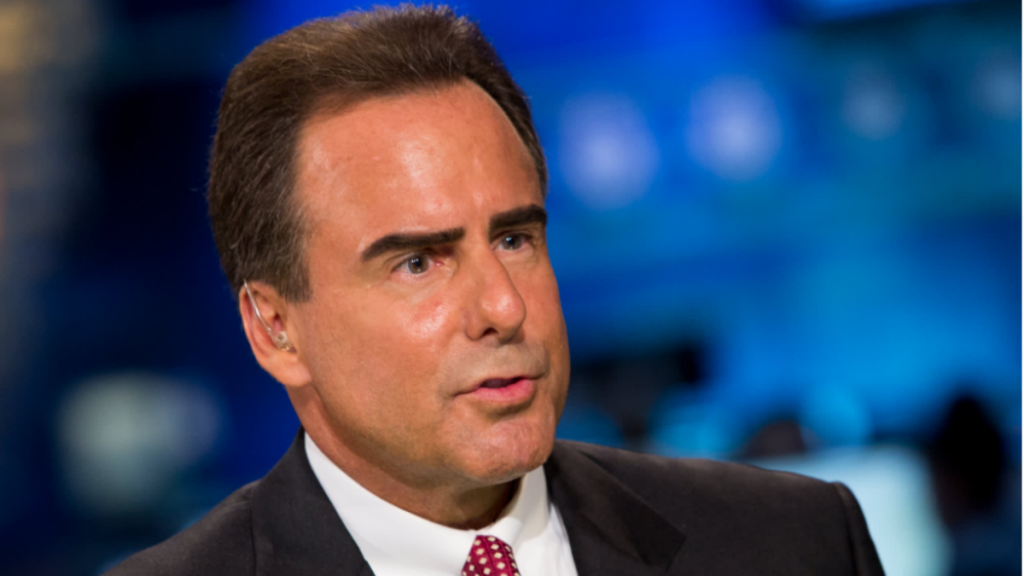Leading a business is challenging, even in the best of times. Add complications to the mix, and leadership becomes exponentially more difficult.
Mark Frissora is a Fortune 500 business executive who has provided leadership to public and private companies for more than 40 years. Over the course of his career, Mark has come to be known as an executive who can be relied upon when companies are facing challenging situations.
“I like anything that is challenging,” Mark explains. “I have a lot of enthusiasm and a lot of passion that I bring to the job. I’ve never shied away from any business situation.”
The work that Mark did at Caesars Entertainment Corporation is a prime example of what his enthusiasm and passion can accomplish. In 2015 he took over as President and CEO of Caesars, the largest casino, and entertainment company in the U.S., one week after the company filed for bankruptcy. After two and a half years as CEO, Mark had led Caesars from bankruptcy to the most profitable gaming operation in Las Vegas.
The strategy Frissora implemented to save Caesars provides a world of insight to any leader tasked with guiding an organization through difficult times.
Leading with Focus and Balance
The challenges Caesars faced when Frissora took the helm had the potential to be overwhelming. Some customers were now unsure about the care they would receive from Caesars and were tempted to transfer their business to competitors, who were happy to receive them. Suppliers had started to doubt that Caesars could pay them. Employees were concerned the ship could be going down.
“The biggest challenge a leader can face is joining a company a week after bankruptcy,” Frissora said. “For me, being balanced and positive and using lessons learned in other difficult situations is what helped me to inspire everyone to keep pulling the oars in the right direction.”
To keep things afloat, he led his team to focus on the essentials.
“We came up with a brand-new strategy statement focusing on very simple things we needed to do to keep the wheels on the wagon while the road was under construction,” Frissora said. “Every strategy we had was focused on improving the value of the company instead of focusing on the negatives, which could just make you want to give up.”
To improve the value of the company, Frissora identified three areas that he felt, if managed successfully, would bring overall success to the company: customer satisfaction, employee satisfaction, and cash management.
“Those were my three pillars,” Frissora explained. “Once they were established, we developed a strategy that focused on all three with balance. Think of it as a three-legged stool; the stool falls if any of the legs go. We had to be very balanced because you don’t want to destroy the enterprise by just focusing on cash management while hurting the employee base or hurting the customer base by ignoring them.”
Communicating with Positivity
Much of the media fixated on the problems that Caesars was facing, and the majority of this attention was not helpful to Frissora’s mission of reviving the company. Any CEO, no matter what business he or she is in, casts a large shadow. He knew that if he stayed positive, he would bring hope to his employees and other stakeholders. To reassure everyone at Caesars, he relied on positive communication that repeatedly and regularly got the right message to the right audience.
“People just want to know what is going on,” Frissora said. “If you tell them what is going on, and you are open and honest and relatable, they trust you and work with you. At Caesars, the employees were very loyal. We just needed to keep them motivated and give them hope that anything negative they were hearing around them was not true.”
In particular, Frissora communicated positivity to the people who played a role in serving Caesars’ customers and its mission. Every weekend he visited one of Caesars’ properties, talking with customers and employees, greeting people and shaking hands, and congratulating employees on a job well done.
“How you communicate and what you communicate builds real teamwork and real camaraderie,” Frissora explained. “People enjoy knowing what is going on. They enjoy hearing the good things about the company. That is what I focused on.”
For Caesars’ customers, Frissora and his team made sure they were launching new initiatives that would communicate that the company was still strong and moving forward.
“We came up with creative things that we could do despite the limitations brought on by the bankruptcy,” Frissora said. “By continuing to offer excitement to our customers, we helped people see a new company with new initiatives, rather than a company that was struggling with bankruptcy.”
Finding a Source of Hope
When a company faces a crisis, as many have during the COVID-19 pandemic, employees and other stakeholders can lose hope quickly. Frissora has overcome many challenges during his career by finding hope in the inspiring words his father shared with him before passing away when Frissora was 12 years old.
Drawing from a poem called “Don’t Quit” by John Greenleaf Whittier, Mark’s father encouraged him to continue to give all you have to whatever challenge you are facing, especially when it seems that things are not working out. Specifically, the poem explains that “(i)t’s when things seem worst that you must not quit.” That attitude has paid huge dividends for Mark and the companies that he has led.




